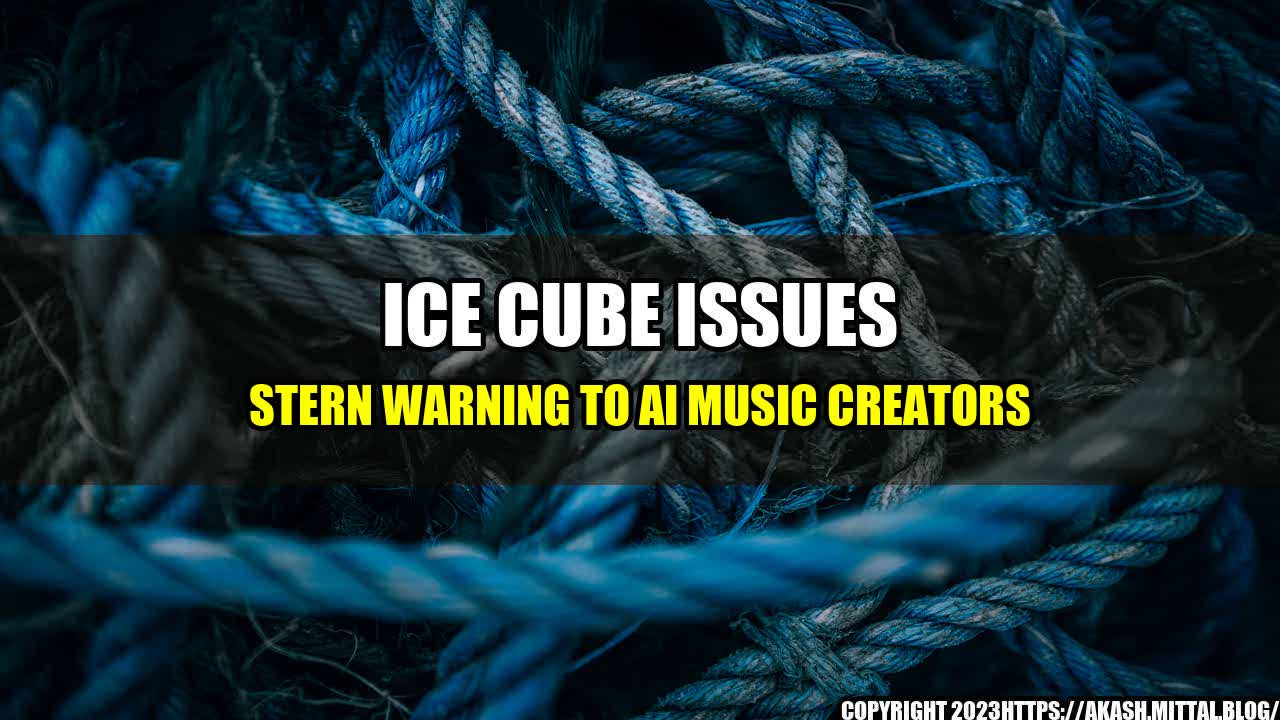Ice Cube, an American rapper, actor, and filmmaker, has recently voiced his concerns about the increasing role of artificial intelligence (AI) in music creation. In an interview with Rolling Stone, he said, "I don't wanna hear that bullsh*t. I wanna hear somebody who got blood in their veins, who's gonna make me feel something."
Ice Cube's warning highlights a growing trend in the music industry as AI-generated music becomes more prevalent. While some see AI as a powerful tool for creativity and innovation, others worry that it will lead to a loss of authenticity and emotion in music.
One example of AI-generated music comes from AIVA, an AI composer that has been trained on thousands of classical pieces. AIVA can analyze various musical parameters, such as tempo, melody, and rhythm, and create original music that fits within a specific genre or mood. According to AIVA, its music has been streamed over 2 million times on major music platforms.
Another example comes from OpenAI, a research organization that has developed an AI system capable of generating music that sounds like it was composed by a human pianist. The system, called MuseNet, can replicate a variety of musical styles, including classical, jazz, and pop.
- AI-generated music has the potential to transform the music industry and open up new creative possibilities.
- However, there is a risk that AI-generated music will lack the emotional depth and authenticity that comes from human creativity and experience.
- Ultimately, the role of AI in music creation will depend on how it is used and integrated into the creative process. It is up to musicians and music producers to decide whether AI is a helpful tool or a threat to their craft.

Curated by Team Akash.Mittal.Blog
Share on Twitter Share on LinkedIn